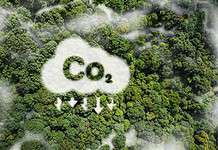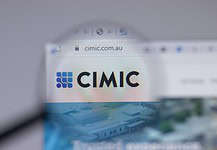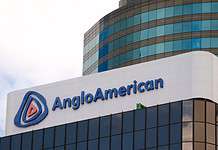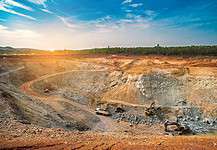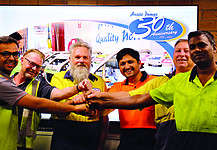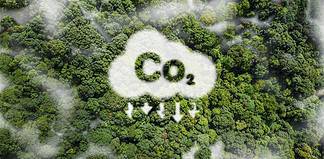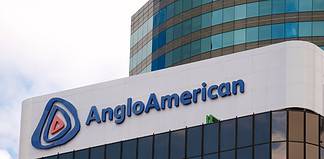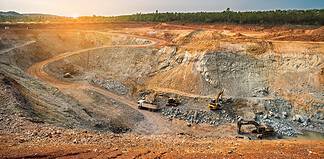A new joint venture between Australia’s largest tyre recycler Tyrecycle and Kariyarra Contracting will specialise in the processing of end-of-life (EOL) off-the-road (OTR) mine-site tyres within Western Australia’s Pilbara region.
In early 2019, the Kariyarra Aboriginal Corporation (KAC) became aware of a problem facing Pilbara-based mining companies relating to an intractable waste stream for which, at that time, there wasn’t an appropriate solution that avoided disposal. The waste stream relates to end-of-life, off-the-road (OTR) tyres with approximately 40,000 tonnes produced and managed in-pit (i.e. buried on-site) each year in the Pilbara region.
By mid-2019, KAC had undertaken an extensive investigation into the technical and commercial feasibility of options for recycling OTR in the Pilbara. The Corporation’s due diligence identified Tyrecycle as the ideal partner to work with on the development of a recycling solution.
Tyrecycle, part of global leader and integrated resource recovery group ResourceCo, is Australia’s market leader in collecting and processing end-of-life tyres (ELTs) and conveyor belts. It’s operations span Australia and include the servicing of remote locations.
Given its long-standing reputation for delivering better environmental outcomes and a commitment to providing full chain of custody, the decision was subsequently made to formalise Tyrecycle as a joint venture partner through the establishment of Kariyarra-Tyrecycle Pty. Ltd.
The company is a 50% Indigenous controlled joint partnership, with direct input from the traditional owners of the Port Hedland area, the Kariyarra People.
In 2018, and after a legal battle spanning two decades, the Kariyarra people were recognised as the native title holders of more than 17,000 square kilometres of land and water in the Pilbara region. The determination area includes Port Hedland, the Aboriginal community of Yandeyarra, several pastoral leases and mining operations.
The Kariyarra Aboriginal Corporation (KAC) is the Prescribed Body Corporate (PBC) managing the native title rights and interests on behalf of the Kariyarra People
Tyrecycle CEO, Jim Fairweather, said the venture provides a strong economic development opportunity not just for the region but also for the Kariyarra People.
“It’s a commercial operation so it will be providing new opportunities for revenue and employment, while also tackling an important environmental issue.
“It will not only prevent land from being destroyed but it will also repurpose all material for use across a range of end-markets, here in Australia and overseas,” he said.
Tyrecycle is the only operator in Australia’s waste rubber recycling sector that can guarantee full chain of custody given its direct trading relationships with offshore consumers of the exported material.
“The recent developments in the expansion of local Pilbara-based ports along with new opportunities to ship non-bulk commodities into and out of Port Hedland have made this partnership possible,” Mr Fairweather said.
“The Kariyarra People have well established relationships with these ports which has advanced arrangements to ship processed waste rubber directly out of the region.
“It’s a local solution towards recycling EOL OTR tyres which is now economically viable.
“It avoids the cost-prohibitive alternative to transporting the processed material over long distances to Fremantle Harbour for export, which simply isn’t a feasible option,” he said.
The EOL OTR tyres will be transported to Kariyarra-Tyrecycle’s soon to be constructed secure processing facility in Port Hedland, which will utilise the new Pilbara Ports Authority non-bulk shipping service. The facility will have the capacity to process over 10t of OTR per hour, nearly 27,000t pa. This equates to four full container loads of material leaving the area per day.
“Utilising existing logistics networks and working together with industry partners we can provide an efficient mine-to-processing service,” Mr Fairweather said.
Once onsite, the tyres will undergo primary processing and be containerised for direct export from the region. The size reduced material will be supplied into Tyrecycle’s overseas processing facility and converted into rubber crumb for either repatriation back into Australia for domestic consumption or to be sold into other markets as a feedstock for other high-value repurposed products. The entire process is subject to strict documentation, process control and protocols.
“Key to the success of this project is the chain of custody control that Kariyarra-Tyrecycle will have in place with Tyrecycle and its overseas operations,” he said.
With strategic investments in plant, equipment and personnel overseas, Tyrecycle, and in-turn the Kariyarra Tyrecycle joint venture, can give mining companies and other waste generators absolute assurance that the waste is being processed in secure facilities that comply with all human health and environmental requirements; including Modern Slavery provisions.
“What this project delivers is a local Pilbara-based approach to towards the environmentally and socially conscious management of OTR waste,” Mr Fairweather said.
Importantly, almost 100% of the Kariyarra-Tyrecycle workforce will be comprised of people from the Kariyarra community, with Kariyarra Contracting providing a key point of access to the local labour market. Kariyarra Contracting is a wholly owned subsidiary of the Kariyarra Aboriginal Corporation (KAC).
“The project will provide stable, high-quality employment opportunities, while also providing our community with an ongoing revenue stream to help support the long-term sustainability of the Kariyarra Aboriginal Corporation (KAC),” said Brenda Alec, Chair Kariyarra Aboriginal Corporation.
“It will enable us to reinvest in other activities, as well as support the philanthropic programs that directly support the Kariyarra People,” she said.
In Australia each year, OTR tyres from mining operations represent one third of end-of-life (OTR) tyres, amounting to well over 100,000 tonnes of waste rubber. Industry sources estimate that the amount of OTR tyres being imported into the Pilbara exceeds 40,000 tonnes per annum.
Currently only 4% of these tyres are recovered for recycling due to the lack of viable recycling options available to mining companies. The most commonly adopted approach is the unsustainable practice of managing the waste ‘in-pit’, essentially referring to burial of the waste rubber.
“What is staggering about these numbers is that it makes no allowance for the amount of waste rubber currently stockpiled or buried in the form of conveyor belts,” Mr Fairweather said.
Recent political, commercial and environmental developments have shown that maintaining the status-quo concerning the low-rates of recovery for heavy duty waste rubber is simply unsustainable.
Indeed, both State and Federal Governments have emphasised their aspirations towards the development of a sustainable, low-waste, ‘circular economy’, as articulated in the Federal Government’s National Waste Policy and supported by various State policies pertaining to waste avoidance and resource recovery.
It’s in this space that Kariyarra-Tyrecycle Pty. Ltd can make a real difference.
“Caring for the environment is important to all Traditional Custodians in the Pilbara region,” said Stephen Stewart, CEO Kariyarra Aboriginal Corporation.
“The responsible reclamation and processing of waste that would otherwise be disposed on country land will help care for the land in a way that preserves it for future generations,” he said.
There is increasing pressure for businesses to more actively address sustainability in terms of their environmental, social and governance performance (ESG).
“How you approach the community is vital to any project’s success,” Mr Fairweather said.
“ESG shapes how business is conducted, measured, regulated and reported on.”
“Tyrecycle is committed to the communities in which it operates and actively seeks to support local organisations with the aim of working together to progress a circular economy. Our risk communication and engagement activities put our partners and the communities in which we operate front and centre, ensuring two-way communication and shared responsibility,” Mr Fairweather said.
“Having a social license to operate and earning the acceptance, trust and support of our partners through strong governance and transparency is central to our ethos.”
Tyrecycle has been a recognised leader in driving responsible and environmentally sound practices in the tyre recycling sector.
“We have been incredibly supportive of the former Council of Australian Governments (COAG) announcement intended ban on the export of whole baled tyres, which comes into effect in December 2021.”
“It presents the best opportunity to turn all end-of-life waste tyres in Australia into value-added commodities such as rubber crumb, rubber granule, tyre-derived fuel (TDF) and high-tensile steel, creating more sustainable local jobs.
“We are proud of our long-standing work with the Australian Tyre Recyclers Association (ATRA) to lead the industry to change.”
ATRA members agreed to ban the practice of exporting whole-baled tyres back in 2014, due to poor environmental outcomes and a direct association with water borne diseases.
“It is inherently important to increase public awareness of the dangers of the unsustainable disposal of EOL tyres and the benefit of re-use,” Mr Fairweather said.
“Tyrecyle continues to work with industry, environment and governments to increase awareness of the importance of tyre recycling and associated product development.”


